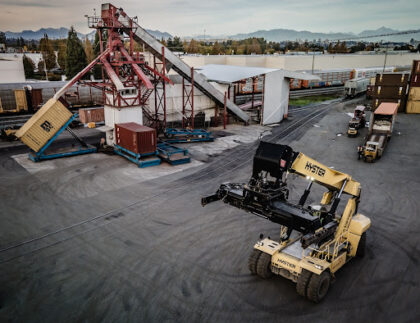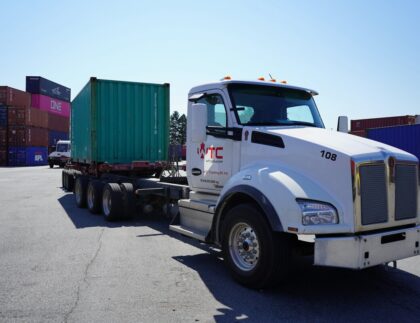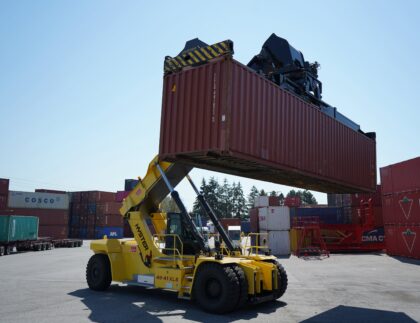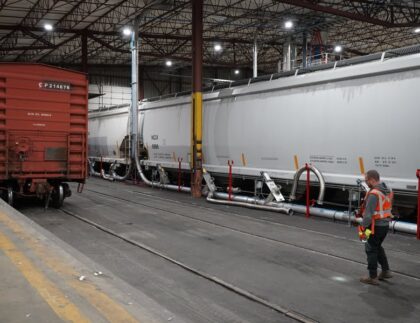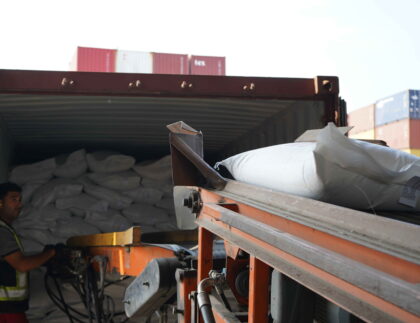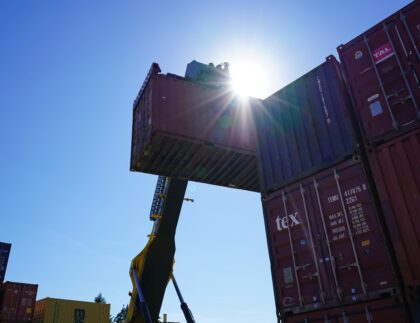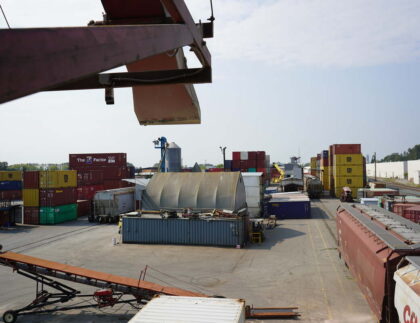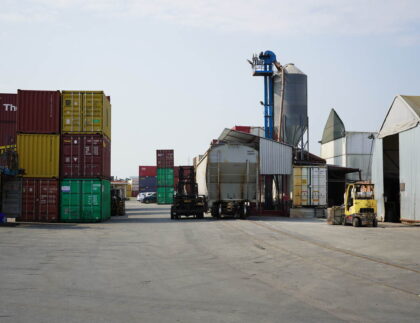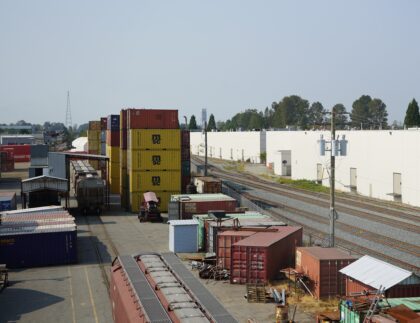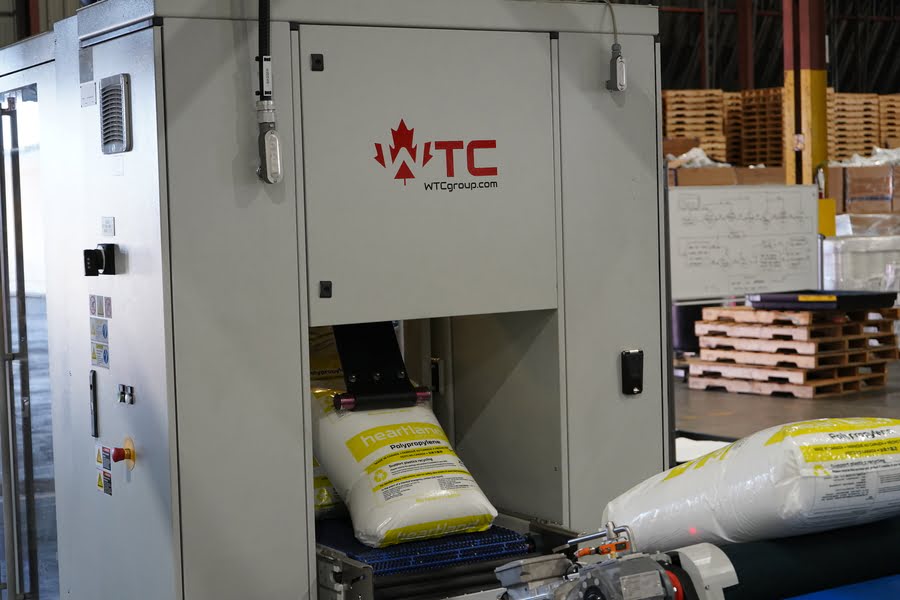
End-to-end logistics for plastic resins produced in North America incorporates everything from product design to delivery at customer locations. British Columbia-based WTC Group is a premier provider of logistics services throughout Canada. We support our partners in plastics with technologically advanced services, such as:
- Single and intermodal transportation by truck, ship, or train
- Third-party logistics for the entire supply chain cycle
- Warehousing, including 270,000 sq. ft. of storage in two warehouses (as well as extensive container storage facilities)
- Digital integration with steamship and driver databases, customs documentation, and customer-friendly interface
Plastic resin pellets are among the most prolific commodities shipped across the country and around the world. There are many regulations for this industry, so it makes sense to partner with recognized industry leaders with the right equipment to do the job efficiently.
Major Plastics Transported in Canada
Canada has restrictions and rules regarding plastics manufacturing, use, and disposal. That makes it imperative to partner with experienced professionals well-versed in the intricacies of the plastics supply chain, including the major types, which include:
- Polyethylene Terephthalate (PET or PETE) plastic: You’ve probably come in contact with this thermoplastic polymer resin in water and soda bottles, and clothing fibres, to name a few. Due to its porous structure, it’s hard to reuse. Further, attempts to clean or reuse them usually increase the associated health risks. However, PET plastic is easy to recycle.
- High-Density Polyethylene (HDPE): Here are some examples of products with HDPE in them:
- Household cleaner bottles
- Flexible pipes
- Outdoor furniture
- Playground equipment
-
- Polyvinyl Chloride (PVC): PVC contains carcinogens and isn’t recyclable. Examples of PVC products include:
- Pipes
- Food wrap
- Window frames
- Shower curtains
- Door frames
- Polyvinyl Chloride (PVC): PVC contains carcinogens and isn’t recyclable. Examples of PVC products include:
- Polypropylene (PP): Polypropylene is a thermoplastic of combined propylene monomers introduced in 1951. It's used in a variety of automotive parts, hinges, and textiles. PP withstands high heat and is incredibly malleable.
These and other plastics require transport options throughout Canada, the US, and beyond. WTC Group can manage all the logistics to provide door-to-door shipping and all of the requisite handling in between.
How Is Plastic Transported?
Typically, plastic pellets are first shipped in bulk to a transload facility; then they are packaged and loaded into export containers for transport on trains, ships, or both. Containerized plastics are easy to move and store domestically or overseas.
Why Are Plastics in Short Supply?
The plastics shortage began during the pandemic when oil prices plummeted, and oil companies cut production drastically. Supply still hasn’t caught up with demand. By December 2022, the nationwide ban on single-use plastics may cut immediate demand, although suitable alternatives are still under development.
How Can Logistics Improve Sustainability?
Sustainable logistics can lower CO2 emissions, accidents, and noise pollution. Logistics suppliers must balance financial growth with environmental care. However, sustainable logistics can boost brand awareness and customer loyalty, as it’s something Canadians value and support.
As of now, plastic alternatives deployed in the consumer packaged goods industry will likely reduce some demand for single-use plastics.
Contact us online or call 1-844-WTC-GRUP (982-4787) for help adjusting to current and future changes in public sentiment that directly affect demand for plastic pellets and similar products. Our containerization and transloading services give you all the flexibility needed to manage smaller or larger loads as demand fluctuates.


